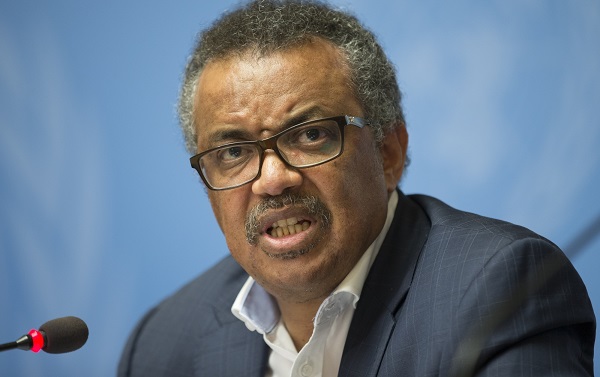Geneva, (Samajweekly) The ongoing COVID-19 pandemic still constitutes a public health emergency of international concern (PHEIC), and long-term response efforts are needed given an anticipated lengthy duration of the pandemic, the World Health Organization (WHO) said.
The WHO Emergency Committee on COVID-19, convened by WHO Director-General Tedros Adhanom Ghebreyesus under the International Health Regulations (IHR), held its fourth meeting on Friday (July 31), WHO said in an online statement released on Saturday, Xinhua news agency reported.
The committee unanimously agreed that the outbreak still constitutes a PHEIC, and noted the importance of “sustained community, national, regional, and global response efforts,” said the statement.
Tedros had declared a PHEIC, WHO’s highest level of alarm under IHR, on Jan. 30 at a time when there were fewer than 100 cases and no deaths outside China. He issued the committee’s advice to States Parties as Temporary Recommendations under the IHR, according to the statement.
“The pandemic is a once-in-a-century health crisis, the effects of which will be felt for decades to come,” Tedros told the committee in his opening remarks on Friday.
“Many countries that believed they were past the worst are now grappling with new outbreaks. Some that were less affected in the earliest weeks are now seeing escalating numbers of cases and deaths. And some that had large outbreaks have brought them under control,” Tedros said.
The Emergency Committee advised WHO to continue to mobilize global and regional multilateral organizations and partners for COVID-19 preparedness and response, to support member states in maintaining health services, while accelerating the research and eventual access to diagnostics, therapeutics, and vaccines.
The committee advised countries to support these research efforts, including through funding, and to join in efforts to allow equitable allocation of diagnostics, therapeutics and vaccines by engaging in the Access to COVID-19 Tools (ACT) Accelerator among other initiatives.
The committee also advised countries to strengthen public health surveillance for case identification and contact tracing, including in low-resource, vulnerable, or high-risk settings and to maintain essential health services with sufficient funding, supplies, and human resources.










